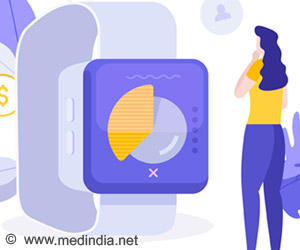Teenage girls who spend too much time in using selfie editing apps and hunting for a perfect selfie to post on social media may feel more body shame, appearance anxiety and depression, suggests a new study.
- Selfie addiction is more common among today’s youth
- Taking too many selfies and posting them in social media has become a viral trend
- Spending too much time on selecting the perfect selfie and editing them using photo editing apps can ultimately lead to body shaming, appearance anxiety and depression
- If a teen seems to be selfie-obsessed, parents and caregivers should take some time to talk and share about the dark side of selfies to put an end to this unhealthy obsession
Read More..
However, when adolescent girls spend too much time agonizing over which photo of themselves to post, or rely heavily on editing apps to alter their images, there may be cause for concern.
The study, by researchers at the University of Arizona, found that selfie editing and time invested in creating and selecting the perfect selfie were both related to self-objectification, which led to body shame, appearance anxiety and more negative appearance evaluations in teen girls.
What is Self-objectification?
"Self-objectification is the idea that you come to think of yourself as an external object to be viewed by other people," said senior study author Jennifer Stevens Aubrey, an associate professor of communication in the University of Arizona College of Social and Behavioral Sciences.
Details of the Study
In addition, the girls completed a series of questionnaires designed to measure their levels of self-objectification and appearance concerns.
Findings of the Study
"Our main finding was that we really shouldn’t be too worried about kids who take selfies and share them; that’s not where the negative effects come from. It’s the investment and the editing that yielded negative effects," Aubrey said.
"Selfie editing and selfie investment predicted self-objectification, and girls who self-objectify were more likely to feel shameful about their bodies or anxious about their appearance."
The researchers said they chose to focus on adolescent girls because they are especially vulnerable to self-objectification.
"Girls are socialized in a way that makes them self-objectify to a greater degree than boys would; that’s a pretty consistent finding," said lead study author Larissa Teran, a doctoral candidate in the University of Arizona Department of Communication, who co-authored the study with Aubrey and doctoral student Kun Yan.
Girls also are more likely than boys to experience negative consequences, such as body image issues, as the result of self-objectification, which can in turn lead to problems like depression and eating disorders, the researchers said.
"Self-objectification is the pathway to so many things in adolescence that we want to prevent," Aubrey said. "So, interventions really should focus on how we can encourage girls to develop an awareness of themselves that’s not solely hinged on what they look like to other people."
The researchers said parents and caregivers of adolescent girls should be aware of red flags on teens’ phones, such as selfie editing apps or camera rolls teeming with selfies. If a teen seems to be selfie-obsessed, it might be time for a talk.
"Having those conversations at a very early age is one of the ways problems can be avoided in the future," Teran said.
The researchers also note that there can be different motivations for sharing selfies.
"Selfies are a part of the media landscape, but you should post them for reasons other than trying to get people to admire your appearance or your body," Aubrey said. For example, posting a selfie on vacation or with friends may be more about sharing an experience than focusing on appearance.
With an estimated 93 million selfies taken each day, they aren’t going away anytime soon, nor should they, researchers said.
Please Note:
Teran said the important thing to remember is: "Selfies aren’t bad. Just don’t obsess."
Reference:
- “But first let me take a selfie”: U.S. adolescent girls’ selfie activities, self-objectification, imaginary audience beliefs, and appearance concerns - (https://doi.org/10.1080/17482798.2019.1697319)
Source-Eurekalert














